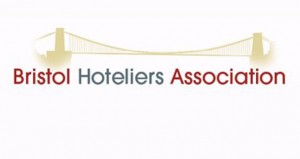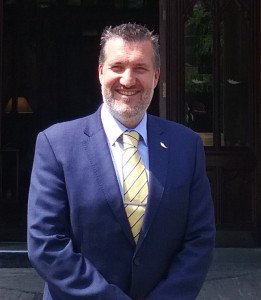Hotel bosses in Bristol have hit out at Chancellor Rishi Sunak, accusing him of offering them nothing but cold comfort for the winter in last week’s Budget.
Like many businesses in the hospitality sector, they had hoped for an extension to the reduced VAT rate. 
But while Mr Sunak announced a one-year, 50% business rates discount for hospitality sectors, there was no mention at all of the VAT rate, which is due to return to its normal rate on April 1 next year.
As a result, members of the Bristol Hoteliers Association (BHA), which represents 40 hotels in and around the city with around 4,000 rooms between them, claim soaring utility bills, spiralling food and drink prices and higher wage costs will mean many hospitality businesses struggling to balance their books this winter.
BHA chair Raphael Herzog, pictured, warned that, combined with the shortage of skilled workers, these factors would lead to a tough few months for many hotels at what is usually a busy time of year for them.
“Many businesses still face a very uncertain future and also we have challenges to overcome such as the staff shortage which is posing a considerable challenge to post-pandemic recovery prospects,” he said.
“For some hotels, the cost of utilities might go up by as much as 300%. There are increasing costs of food and beverages, increases in costs for our suppliers and there is also the increase in the rate of the living wage going to £9.50 per hour. 
“In simple terms, this means it is going to cost more for guests to stay and eat in hotels, which is going to make it very challenging for some hospitality businesses to balance their books.
“Added to that is the continuing staff shortage. Hotels are struggling to find the waiters and housekeeping staff that they need in order to provide the standards of service that our customers expect.
“Even where wages have increased by 20% or more, hotels are just not getting the applications they need for these roles.
“We hear every day that, all around the UK, some hotels, restaurants and bars are not opening fully because they simply don’t have the staff they need. Some are operating at only 75% capacity, or even less.”
Having seen the government introduce temporary visas to help with the shortage of lorry drivers, the BHA had hoped the Chancellor would announce something similar for the skilled hospitality workers, including chefs.
“We had hoped for a little more support from the Chancellor in his Budget,” said Mr Herzog.
“Not only was the VAT rate not mentioned, but there was very little mention of the hospitality sector in general, despite being one of the biggest UK tax contributors and also one of the sectors that suffered most during the pandemic lockdowns.
The BHA had supported the #VATsEnough campaign, which called for the current 12.5% VAT rate to be made permanent for the sector.
Another challenge for Bristol’s hotels is they are still not yet seeing the return of conferences to anything like pre-pandemic levels, added Mr Herzog.
“Many people are still working from home, which means corporate travellers are not using hotels, and added to that challenge is the fact that the leisure business is now slowing down again compared to the summer boom,” he said.
“Usually at this time of the year, we are planning for Christmas but this is also very slow this year, as many companies don’t want to engage in large social events because of ongoing Covid fears, which is very understandable, of course, but which is one more challenge which does not help the hospitality industry.”






























